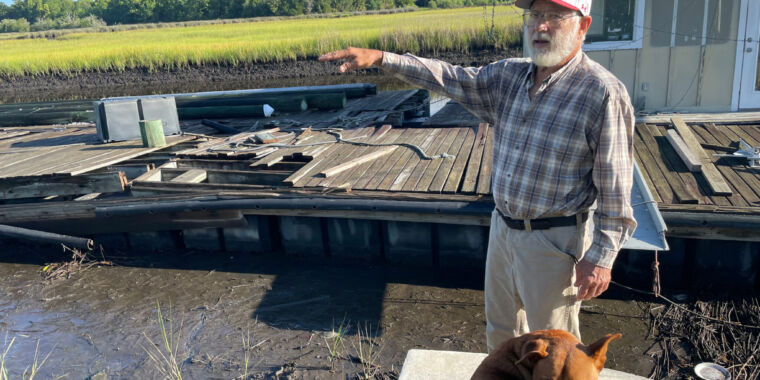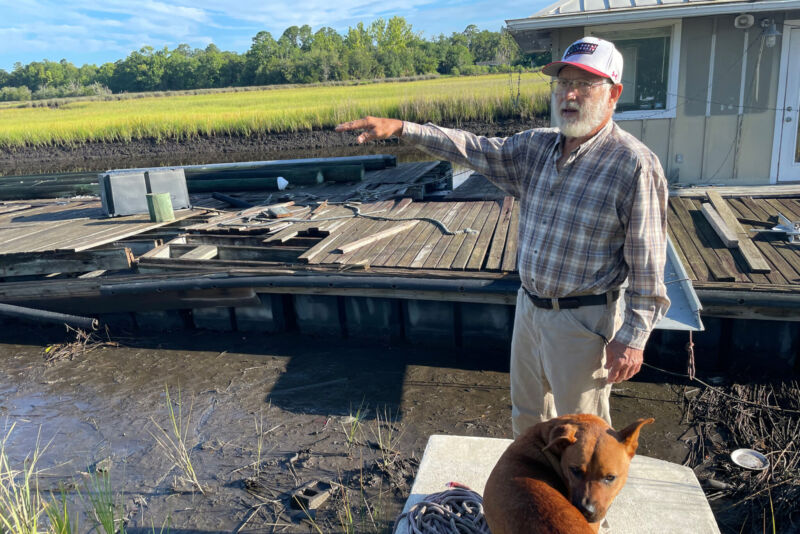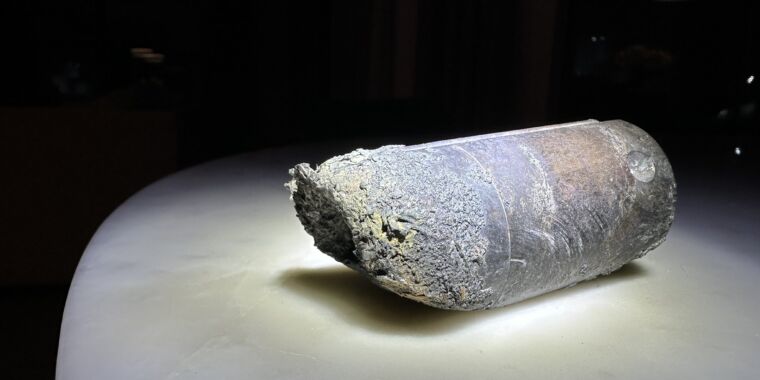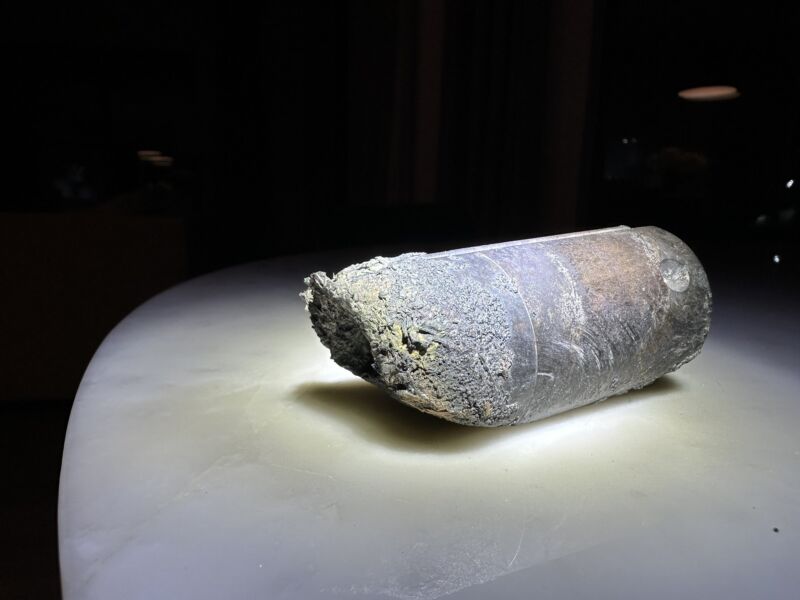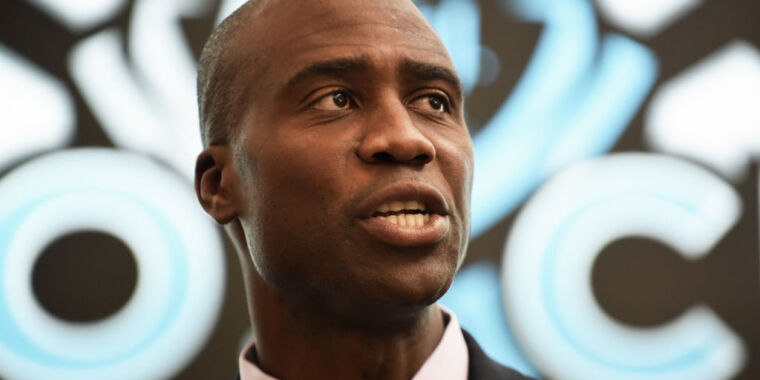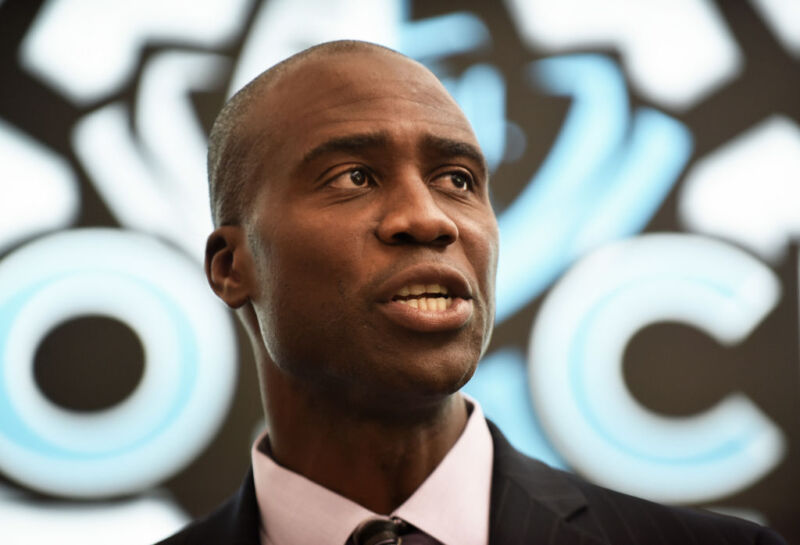Disney fighting restaurant death suit with Disney+ terms “absurd,” lawyer says

Enlarge / Raglan Road Irish Pub at Disney Springs in Orlando, Florida, USA.
After a woman, Kanokporn Tangsuan, with severe nut allergies died from anaphylaxis due to a Disney Springs restaurant neglecting to honor requests for allergen-free food, her husband, Jeffrey Piccolo, sued on behalf of her estate.
In May, Disney tried to argue that the wrongful death suit should be dismissed because Piccolo subscribed to a one-month free trial of Disney+ four years before Tangsuan’s shocking death. Fighting back this month, a lawyer representing Tangsuan’s estate, Brian Denney, warned that Disney was “explicitly seeking to bar its 150 million Disney+ subscribers from ever prosecuting a wrongful death case against it in front of a jury even if the case facts have nothing to with Disney+.”
According to Disney, by agreeing to the Disney+ terms, Piccolo also agreed to other Disney terms vaguely hyperlinked in the Disney+ agreement that required private arbitration for “all disputes” against “The Walt Disney Company or its affiliates” arising “in contract, tort, warranty, statute, regulation, or other legal or equitable basis.”
However, Denney argued that “there is simply no reading of the Disney+ Subscriber Agreement, the only Agreement Mr. Piccolo allegedly assented to in creating his Disney+ account, which would support the notion that he was agreeing on behalf of his wife or her estate, to arbitrate injuries sustained by his wife at a restaurant located on premises owned by a Disney theme park or resort from which she died.”
“Frankly, any such suggestion borders on the absurd,” Denney said.
Denney argued that Disney’s motion to compel arbitration was “so outrageously unreasonable and unfair as to shock the judicial conscience.”
It’s particularly shocking, Denney argued, because of a “glaring ambiguity” that Disney “ignores”—that Piccolo more recently agreed to other Disney terms that “directly conflict” with the terms that Disney prefers to reference in its motion.
Denney argued that Disney is “desperately” clinging to “Piccolo’s purported consent to the Disney Terms of Use in November of 2019, because the My Disney Experience Terms and Conditions he allegedly consented to in 2023″—when purchasing tickets on Disney’s website to Epcot that went unused—”do not contain an arbitration provision.”
Those terms instead “rather expressly contemplate that the parties may file lawsuits and requires those suits to be filed in Orange County Florida and to be governed by Florida law,” Denney said. They also specify that the My Disney Experience terms prevail amid any conflict with other terms.
This renders “the arbitration provision in the Disney Terms of Use unenforceable,” Denney argued, requesting Disney’s motion be denied and suggesting that Disney is attempting “to deprive the Estate of Kanokporn Tangsuan of its right to a jury trial.”
He also reminded the court that in nursing home cases, Florida courts have “repeatedly held that a resident’s estate will not be bound by an arbitration agreement signed by a spouse or other family member in their individual capacity.”
Disney is hoping that its Disney+ terms argument will push the litigation out of the court and behind closed doors of arbitration, arguing that “Piccolo’s remaining claims against Great Irish Pubs”—which does business as Raglan Road Irish Pub—”should be stayed as well.” That would be proper, Disney argued, because Piccolo’s claims against Disney “are based entirely on Great Irish Pubs’ alleged misconduct” and “it would be problematic for this litigation to continue since each tribunal may decide the issues differently.”
Disney also noted that the litigation should also be stayed if Great Irish Pubs joined the arbitration, which Disney “would not oppose.”
Denney argued that Disney’s motion to compel arbitration was “fatally flawed for numerous independent reasons.”
“There is not a single authority in Florida that would support such an inane argument,” Denney argued. It’s “preposterous,” he said, that Disney is arguing that “when Jeffrey Piccolo, individually, allegedly signed himself up for a free trial of Disney+ back in 2019 or bought Epcot tickets in 2023, he somehow bound the non-existent Estate of Kanokporn Tangsuan (his wife, who was alive at both times) to an arbitration agreement buried within certain terms and conditions.”
Disney fighting restaurant death suit with Disney+ terms “absurd,” lawyer says Read More »

